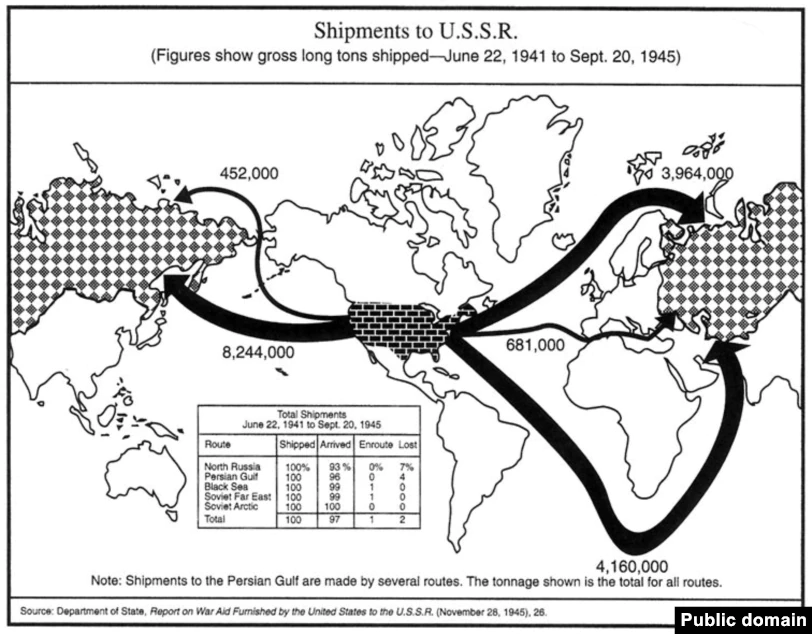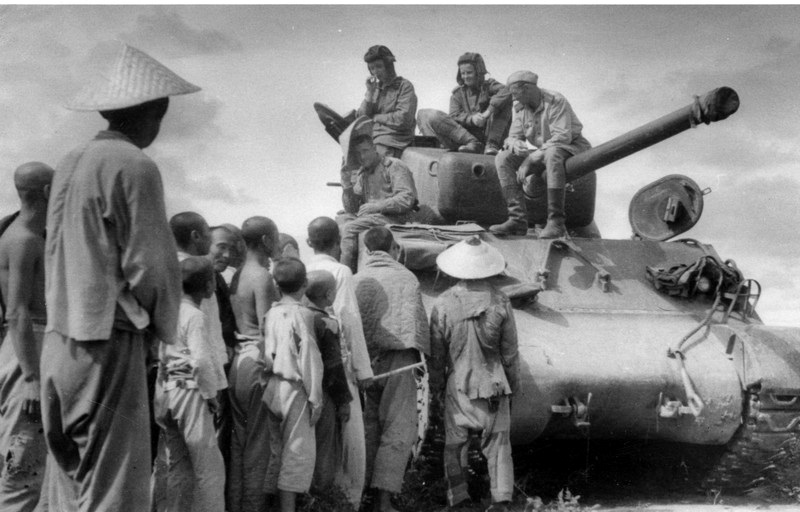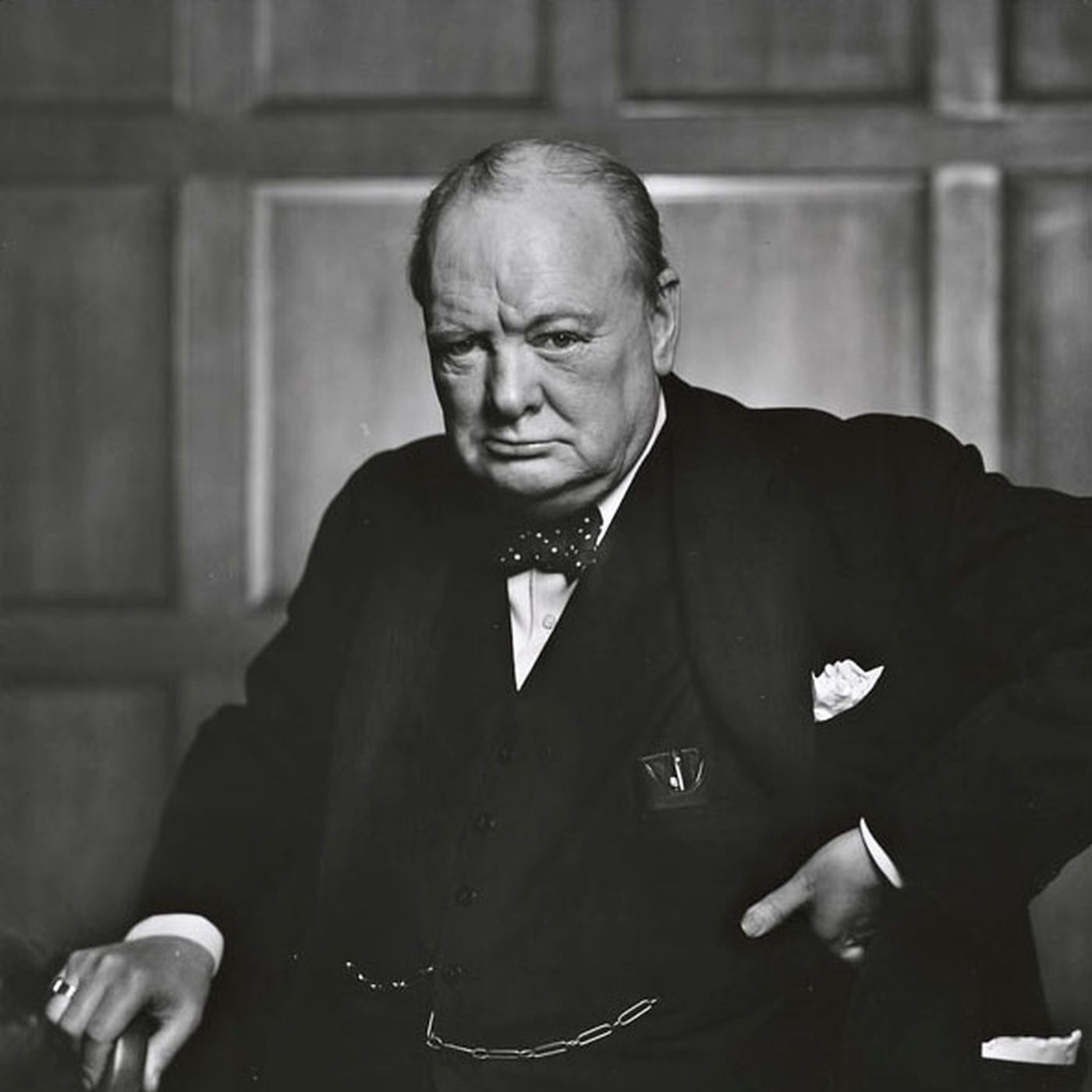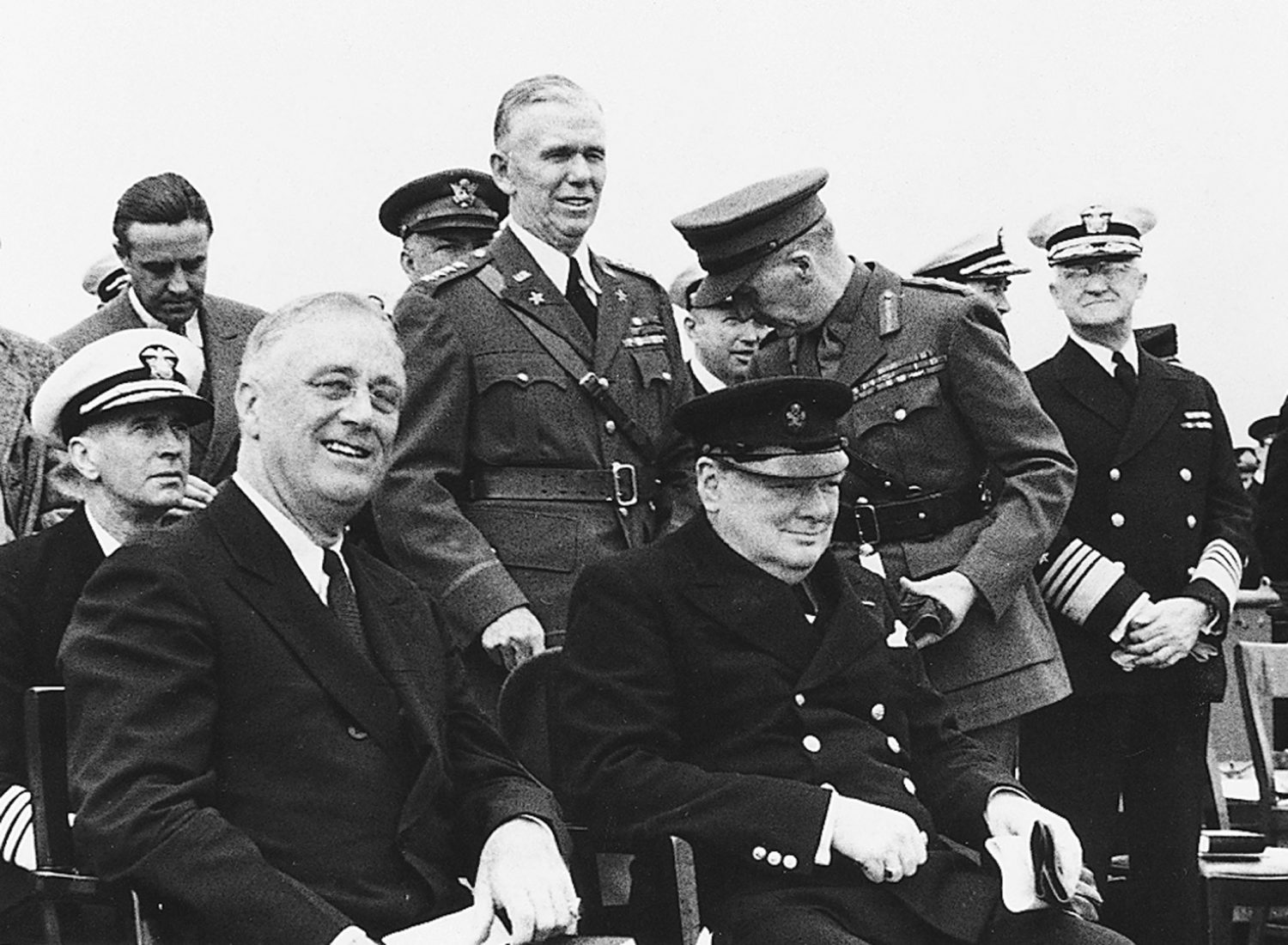
Courtesy of Wikipedia Commons
Britain’s need for supplies and the United States' desire to remain neutral in WWII sparked international debate between the two nations. The Lend-Lease Act allowed the US to support Britain and eventually other allied nations while remaining neutral. This strengthened diplomatic relations between the Allied powers and ended American isolationism.
"Well boys, Britain's broke; it's your [the American public's] money they want."
~ Lord Lothian, British Ambassador to the U.S.

A Lend-Leased Tank
Courtesy of National Archives
By 1940, Britain was struggling to pay back America (via cash-carry) as they were fighting a protracted war. Realizing Britain was in its 'Darkest Hour', Churchill pleaded for more direct US involvement. Although Roosevelt was eager to support Allied powers, public opinion and Congress forced Roosevelt to stay neutral. Roosevelt needed a stronger reason from allies, specifically from Britain, to sway himself and public opinion in favor of more direct US involvement.
Below are speeches and letters between Roosevelt and Churchill considering US involvement:
December 8th, 1940:
"My dear Mr. President,
AS we reach the end of this year, I feel you will expect me to lay before you the prospects for 1941. I do so with candour and confidence, because it seems to me that the vast majority of American citizens have recorded their conviction that the safety of the United States as well as the future of our two democracies and the kind of civilization for which they stand, are bound up with the survival and independence of the British Commonwealth of Nations. Only thus can those bastions of sea power, upon which the control of the Atlantic and Indian Oceans depend, be preserved in faithful and friendly hands. The control of the Pacific by the United States Navy and of the Atlantic by the British Navy, is indispensable to the security and the trade routes of both our countries, and the surest means of preventing war from reaching the shores of the United States.
…
17. Last of all, I come to the question of Finance. The more rapid and abundant the flow of munitions and ships which you are able to send us, the sooner will our dollar credits be exhausted. They are already, as you know, very heavily drawn upon by the payments we have made to date…
…The moment approaches when we shall no longer be able to pay cash for shipping and other supplies."
Churchill emphasizes the importance of the UK's survivability to US international interests: without Britain, control of the seas wouldn't be possible. Not to mention, Britain was short on money. Roosevelt must act...

Prime Minister Winston Churchill
Courtesy of Wikipedia Commons
May 15th, 1940:
"Mr. President,
As we reach the end of this year I feel that you will expect me to lay before you the prospects for 1941. I do so strongly and confidently because it seems to me that the vast majority of American citizens have recorded their conviction that the safety of the United States as well as the future of our two democracies and the kind of civilization for which they stand are bound up with the survival and independence of the British Commonwealth of Nations. Only thus can those bastions of sea power, upon which the control of the Atlantic and the Indian Oceans depends, be preserved in faithful and friendly hands. The control of the Pacific by the United States Navy and of the Atlantic by the British Navy is indispensable to the security of the trade routes both our countries and the surest means to dpreventing the war from reaching the shores of the United States."
FDR, in the early stages of Churchill's pleas, often disregarded Britain's need for US involvement. As a result, Churchill continued sending messages urging Roosevelt to act.

President Roosevelt
Courtesy of U.S. National Parks Service
“Suppose my neighbour’s house catches fire and I have a length of garden hose four or five hundred feet away. If he can take my garden hose and connect it up with his hydrant, I may help him to put out the fire. Now what do I do? I don’t say to him before that operation, ‘Neighbour, my garden hose cost me $15; you have to pay me $15 for it.’ No!
What is the transaction that goes on? I don’t want $15 – I want my garden hose back after the fire is over. There is absolutely no doubt in the mind of a very overwhelming number of Americans that the best immediate defence of the United States is the success of Great Britain defending itself; and that therefore, quite aside from our historic and current interest in the survival of Democracy in the world as a whole, it is equally important from a selfish point of view and of American defence that we should do everything possible to help the British Empire to defend itself.”
After communitcating with Churchill, FDR becomes convinced of Britain's dire need to receive further American support. This eventually leads to the introduction of the Lend-Lease Act to Congress and its debate.
January 20, 1941
"Dear Churchill
Wendell Wilkie will give you this--He is truly helping to keep politics out over here. I think this verse applies to you people as it does to us: "Sail on, Oh Ship of State! Sail on, Oh Union strong and great. Humanity with all its fears with all the hope of future years is hanging breathless on thy fate."
~ Franklin D. Roosevelt
With the approval of the Lend-Lease Act, Churchill and Roosevelt would establish lasting bonds between their countries, namely the Atlantic Charter and meetings at Casa Blanca, Tehran, Yalta, and Potsdam, coordinating the war and post-war era. The letter (above) quotes a Longfellow poem, "The Building of the Ship." Churchill found it to be inspiring and hung it in his home.

Roosevelt and Churchill
Courtesy of atlanticcouncil.org

Courtesy of Wikipedia Commons
With shortages in every sector of Russian industry as a result of defeats from Germany, Soviet dictator Joseph Stalin needed assistance. While Stalin feared Lend-Lease was an opportunity for America to surpass the world economically, desperation forced him to accept Lend-Lease aid.
Ultimately, Lend-Lease was a mutual cooperation that helped to defeat Hitler and eased pre-existing tensions between the two ideologically different nations.
"The United States is a country of machines. Without the machines we received through Lend-Lease, we would have lost the war."
~ Former Premier of the Soviet Union Joseph Stalin
Joseph Politi, Ella Forkin, and Slade Forkin
The Point of No Return: The U.S., Allied Powers, and Lend-Lease
Group Website, Senior Category
Website Word Count: 1197
Multimedia Length: 2:36 minutes
Process Paper Word Count: 500